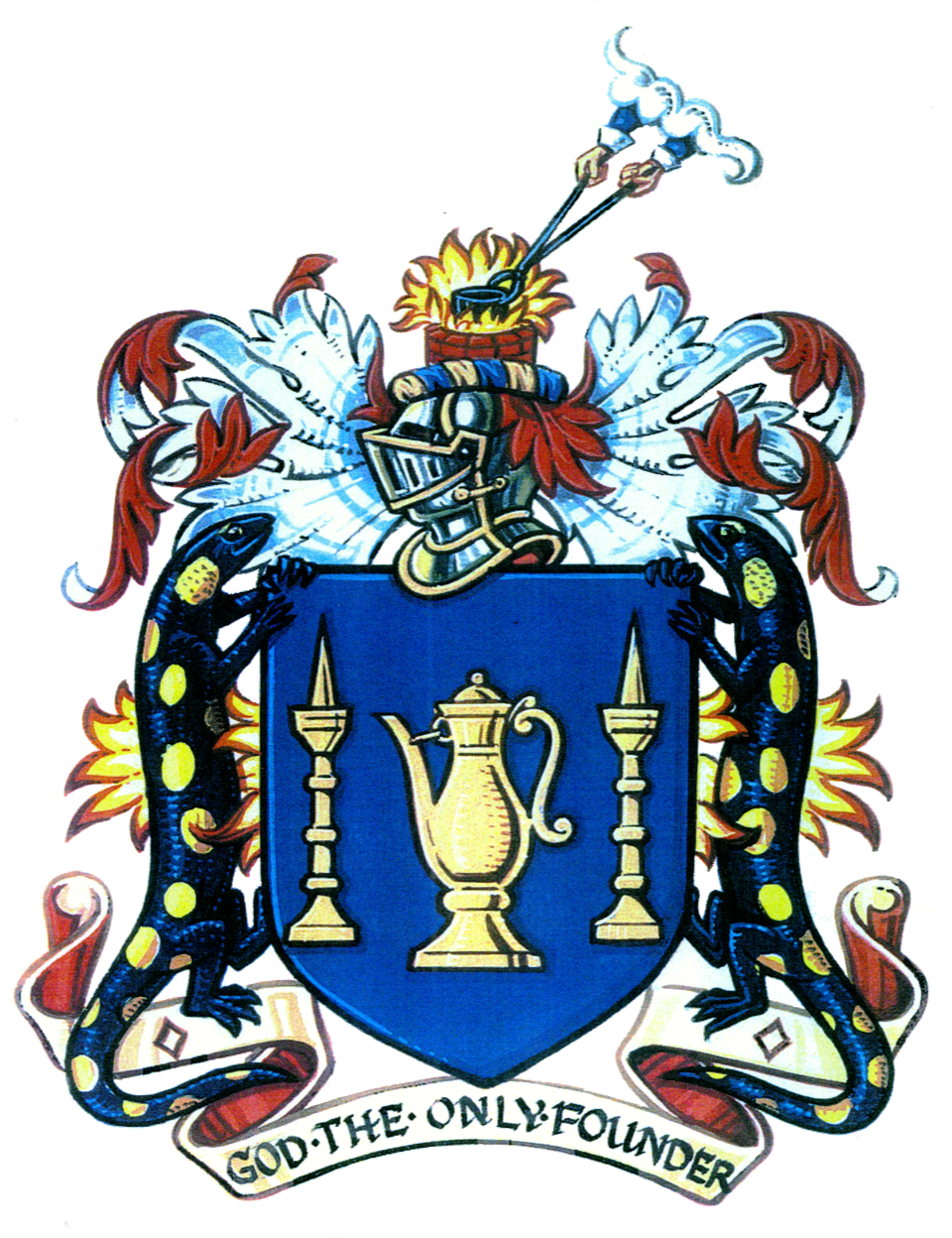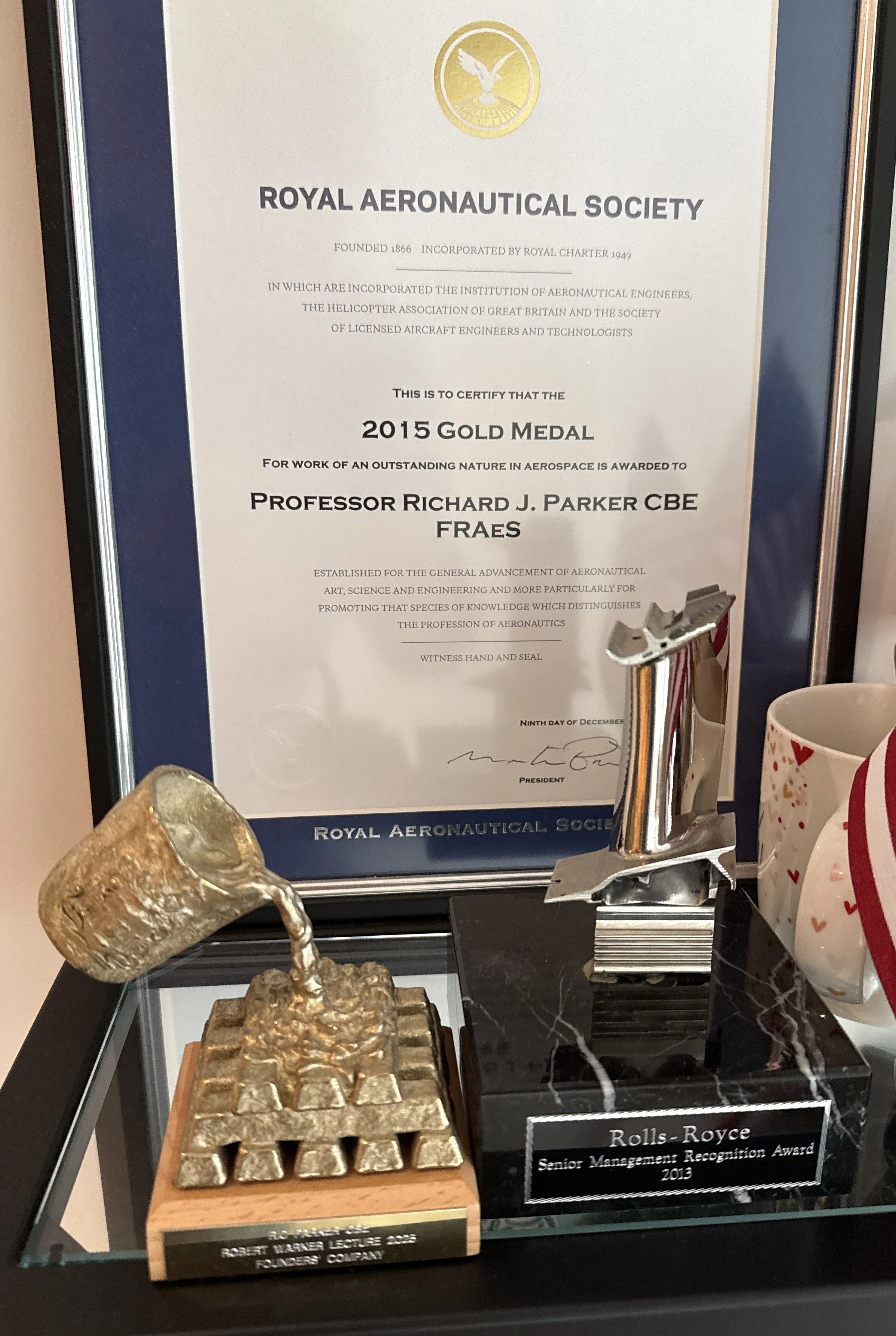Flights of Fancy or the Future of Travel?
“From Concord to Boom Supersonic” was the title of the illustrated lecture from Prof Ric Parker CBE, presenter of the 2025 Warner Lecture.
With a keen and continuing interest in the aerospace sector, Ric is now an independent adviser for many low carbon energy initiatives and chairs the Singapore Aerospace Programme, A*STAR as well as being visiting professor for a number of international universities. He has been the recipient of many international awards, and is a Fellow of the Royal Academy of Engineering, The Royal Aeronautical Society, The Institute of Physics and the Institute of Mechanical Engineers and a liveryman of the Worshipful Company of Engineers.
Ric began by describing the development of the world’s first supersonic airliner, Concorde, up to the ultimate retirement of the remaining fleet in 2003. He is now able to bring the knowledge and expertise gained from decades of first-hand experience to bear through his work with Blake Scholl, founder of Boom Supersonic, the first privately-funded civil supersonic airliner, now being developed and built in North Carolina. Boom has the aim of offering flight times that are 40 to 50% shorter than those from conventional aircraft – London to New York in 3h 40m – whilst also contributing to a reduction in the current 3% of CO2 emissions that are generated by the sector, something that needs to be reduced by around 65% by 2050.
Based on the purpose-built Turbofan engine, he described the various challenges and design trade-offs that the small team at Boom Supersonic are necessarily working through to ensure that the plane can be sustainable (able to fly using synthetically-derived sustainable aviation fuel), commercially viable (not just for the super-rich) whilst also meeting stringent modern safety and noise requirements, not to mention the comfort expectations from today’s business travellers. Test flights with the demonstrator aircraft, XB-1 have successfully taken place, achieving speeds in excess of MACH 1.1, and even though no aircraft are yet available, the company’s order book already extends to several years’ worth of production with major airlines including American, United and JAL.
A physics graduate, and with an MBA, Ric has spent most of his career in engineering at Rolls Royce, ultimately as Director of Research and Technology for 15 years, and he strongly encouraged the younger guests present to consider apprenticeships in engineering as the foundation for a rewarding and interesting career.
Ric’s passion for engineering and jet engine technology shone through with questions like ‘can we do away with windows in the fuselage?’ and ‘what materials can be used to cope with the external heat fluctuations being experienced by the fuselage?’ all being discussed during the evening.
Ric’s memento (bottom left)
At the close of the evening Ric was presented with some mementos of the Company, and a small metal casting bearing The Founders’ Crest that had been cast in the UK by Sylatech, using a variant of the lost wax casting process.
Industry Committee Chair, Pam Murrell FICME, who compered the evening says:
“We are hugely grateful to Professor Parker CBE for being so generous with his time, sharing his experiences from his career in aerospace engineering and dealing graciously with some of the more challenging questions.
“Thank you to everyone who was able to come along and contribute the evening, including all the university bursary students, our Artisans and the sixth formers from the schools the company supports, as well as guests from academia and from the foundry and castings industry and fellow Founders.
“It was a lovely evening – a great presentation, with good food and drink, stimulating conversations and all the usual camaraderie we expect at the Hall. And of course we are hugely grateful to the caterers, Life’s Kitchen, and to Eloise and Keith who actually make it all happen.”
Our speaker, Industry Chair and Master pictured discussing the contents of the afternoon’s lecture


